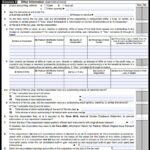Content

Liability can also refer to one’s potential damages in a civil lawsuit. Liabilities refer Liability Definition to things that you owe or have borrowed; assets are things that you own or are owed.
- All content and materials are for general informational purposes only.
- Life insurance funds invest more in fixed interest securities because a large part of their liabilities is in nominal terms.
- Short-term liabilities of the balance sheet are where mortgage payments due this year are recorded because they constitute the current element of long-term debt.
- Less common non-current liabilities consist of things like deferred credits, post-employment benefits, and unamortized investment tax credits .
- The term liability may commonly be used to describe a company’s legal obligation or risk.
- “Harm” means death, physical injury to person, serious emotional distress, or physical damage to property other than the product in question.
- While they may be not be as common as other types, you should not overlook them.
AP can include services,raw materials, office supplies, or any other categories of products and services where no promissory note is issued. Since most companies do not pay for goods and services as they are acquired, AP is equivalent to a stack of bills waiting to be paid. The current/short-term liabilities are separated from long-term/non-current liabilities on the balance sheet. Liability may also refer to the legal liability of a business or individual. For example, many businesses take out liability insurance in case a customer or employee sues them for negligence.
Section 2307.71 | Product liability definitions.
Company Liability.Any enforceable debt or obligation for which the Company is liable or which is secured by any Company Property. CONTRIBUTION – Any contribution of Property to the Company made by or on behalf of a new or existing Member or Assignee as consideration for a Membership Interest. DISINTERESTED MEMBER – Any Member other than a Member who has a direct or indirect interest in any transaction other than as a Member of the Company generally. DISTRIBUTION – A transfer of Property to a Member on account of a Membership Interest as described in Article . DISPOSITION – Any sale, assignment, lease, transfer, conveyance, exchange, mortgage, pledge, grant, hypothecation, or other transfer, absolute or as security or encumbrance . Company Liabilitymeans any enforceable debt or obligation for which the Company is liable or which is secured by any Company property.
What are the 3 types of liabilities?
Liabilities can be classified into three categories: current, non-current and contingent.
Because owners do not want to be personally liable for losses. A dividend is a part of the firm’s profits that is paid to its shareholders. The more shares an owner has in the company, the more dividend payments they receive. The Hartford shall not be liable for any damages in connection with the use of any information provided on this page.
liability | American Dictionary
A liability is something that is owed to, borrowed from, or bound to another party. Let’s look at a historical example utilizing AT&T’s balance sheet to illustrate how to grasp a company’s liabilities. Liabilities are a vital part of any organization because they help to pay for operations and large expansions. Additionally, they can enhance the efficiency of contracts between businesses.
- The AT&T example has a relatively high debt level under current liabilities.
- Expenses and liabilities should not be confused with each other.
- General liability insurance doesn’t coveremployee injuries, auto accidents, punitive damages , workmanship, intentional acts or professional mistakes.
A liability can be a monetary sum that a company will pay to another entity, or it may be paid in goods or services. Balancing assets and liabilities enables businesses to maintain healthy free cash flow and cover their operational expenses. Liability definition can be multifaceted in the business world. Broadly speaking, a liability can be anything that your company takes responsibility for.
Projects
This means that they are not personally responsible for the debts of the company. In an unlimited liability business, the owner is personally responsible for the debts of the business. This means that if the business were experiencing financial difficulties, the personal assets of the owner are at risk. The most common liabilities are accounts payable and bonds payable. Most businesses will have both of these listed on their balance sheet for both current and long-term accounting.

For example, in most cases, if a wine supplier sells a case of wine to a restaurant, it does not demand payment when it delivers the goods. Rather, it invoices the restaurant for the purchase to streamline the drop-off and make paying easier for the restaurant. Anderson is CPA, doctor of accounting, and an accounting and finance professor who has been working in the accounting and finance industries for more than 20 years. Her expertise covers a wide range of accounting, corporate finance, taxes, lending, and personal finance areas. Within the context of insurance, the obligation to pay a monetary award for injury or damage caused by one’s negligent or statutorily prohibited action. Public limited companies tend to be big and well-known international companies.
For example, if a company has more expenses than revenues for the past three years, it may signal weak financial stability because it has been losing money for those years. Companies of all sizes finance part of their ongoing long-term operations by issuing bonds that are essentially loans from each party that purchases the bonds. This line item is in constant flux as bonds are issued, mature, or called back by the issuer.
Investopedia requires writers to use primary sources to support their work. These include white papers, government data, original reporting, and interviews with industry experts. We also reference original research from other reputable publishers where appropriate.
Frequently Asked Questions about Limited Liability
The liability information gives investors important information regarding the liquidity and solvency of a company.Liabilities are an important element of the operations of a company. They are key in helping financial https://quick-bookkeeping.net/how-small-businesses-can-prepare-for-tax-season/ operations and achieving growth. A contingent liability is a liability that may occur but only needs to be paid in the future because of unresolved issues, which makes it a possibility but not a certainty.